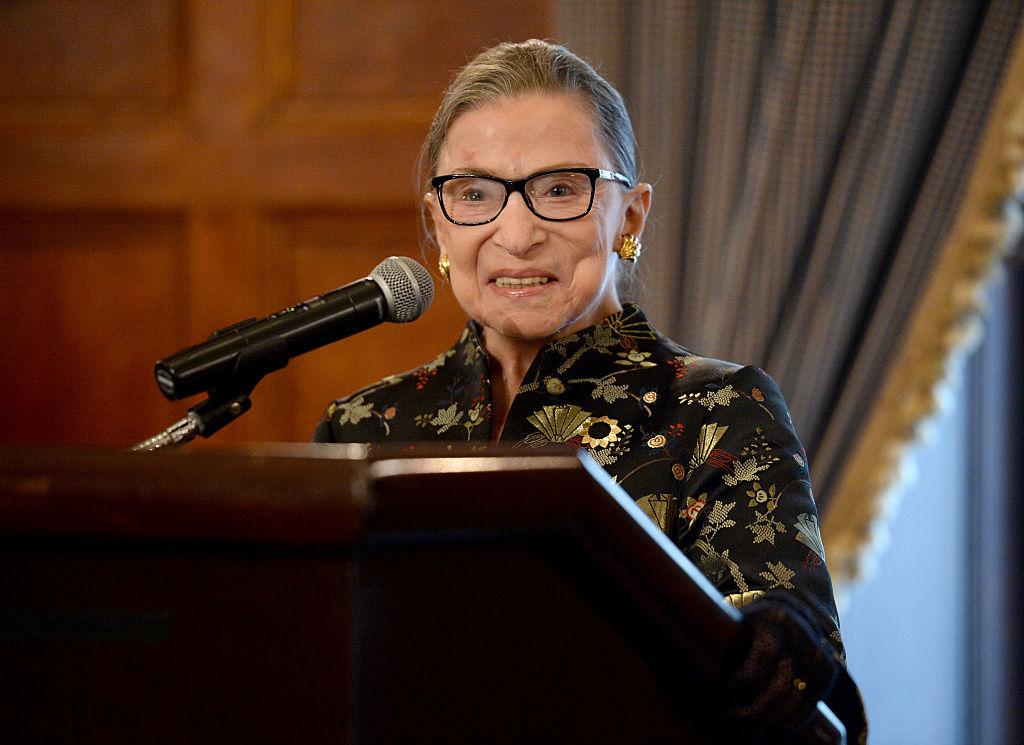She’s a Supreme Court justice, a feminist icon, and a whip smart thinker. She’s also 85 years old. How does Ruth Bader Ginsburg (commonly known to her hordes of admirers as “the Notorious RBG“) manage to keep her mind so sharp in her eighth decade of life? And what can the rest of us learn from her impressive display of aging with grace?
That’s the topic of a fascinating recent Thrive Global article in which writer Elizabeth Yuko talks to a number of experts about what has enabled RBG to thrive in a demanding job at an age when most of us focus on puttering in the garden or perfecting our golf swings.
Their answers include the usual sensible advice about good diet and exercise (RGB may not immediately look the part but she’s a major gym rat), but the most interesting insight has nothing to do with leafy greens or time in the weight room, essential as those things are. Instead, the real secret is her mindset.
You’re only as old as you feel is a cliche for a reason.
Mieke Beth Thomeer, a gerontology specialist at the University of Alabama at Birmingham explains to Yuko that many of us expect to “disengage” with our work and society as we get older. We view this as both healthy and inevitable. RBG quite obviously disagrees and Thomeer suggests this really makes the difference.
“RBG’s response to her recent fall – going back to the Court and diving right in – indicates that she is modeling successful aging,” Thomeer tells Yuko. By insisting on keeping up a demanding engagement with work and life RBG exercises her brain just like she exercises her muscles, and that stimulation appears to be key to maintaining mental sharpness as we age.
In other words, use it or lose it. And clearly RBG doesn’t buy into the self-fulfilling prophecy that age means an inevitable decline in both our physical and mental abilities.
Defiance in the face of negative stereotypes about older adults is a strategy Thomeer recommends to all of us. “Older adults who are able to keep working at jobs they love – or find new jobs or volunteer opportunities that they find fulfilling – go a long way towards successfully aging,” she advises.
Science says this isn’t just wishful thinking.
All of which sounds nice – who wouldn’t want to think that we can slow our inevitable decline through a simple act of refusing to accept negativity around aging – but is it just wishful thinking, or is it backed by science? Research into the subject is ongoing but early results suggest that attitude really does matter.
One recent study, for instance, found older adults who were high in openness – i.e. more willing to try new things – had a significantly lower “subjective age” than others who were more closed minded. In short, they felt a whole lot younger than the number of candles on their birthday cake might suggest. Staying engaged with the world and experimenting with fresh ideas and activities appears to significantly affect how our brains age.
Along similar lines, Yale psychologist Becca Levy, has “found that older research subjects who were exposed to negative aging stereotypes performed worse on cognitive tests than those who were given positive stereotypes. And, among the general population of older adults, Levy found that those who have taken in more negative age stereotypes were more likely to experience stress and develop dementia,” according to the Boston Globe.
All of this backs up the idea that the Notorious RBG is on to something with her refusal to retire or otherwise accept the ‘inevitability’ of age-related mental decline. By thumbing her nose at agist ideas about what an 85 year old is capable of and soldiering right on with her busy life she’s pushing her brain to keep up with her expectations.
The rest of us should probably consider following her lead.
Originally published on Inc.
Follow us here and subscribe here for all the latest news on how you can keep Thriving.
Stay up to date or catch-up on all our podcasts with Arianna Huffington here.


